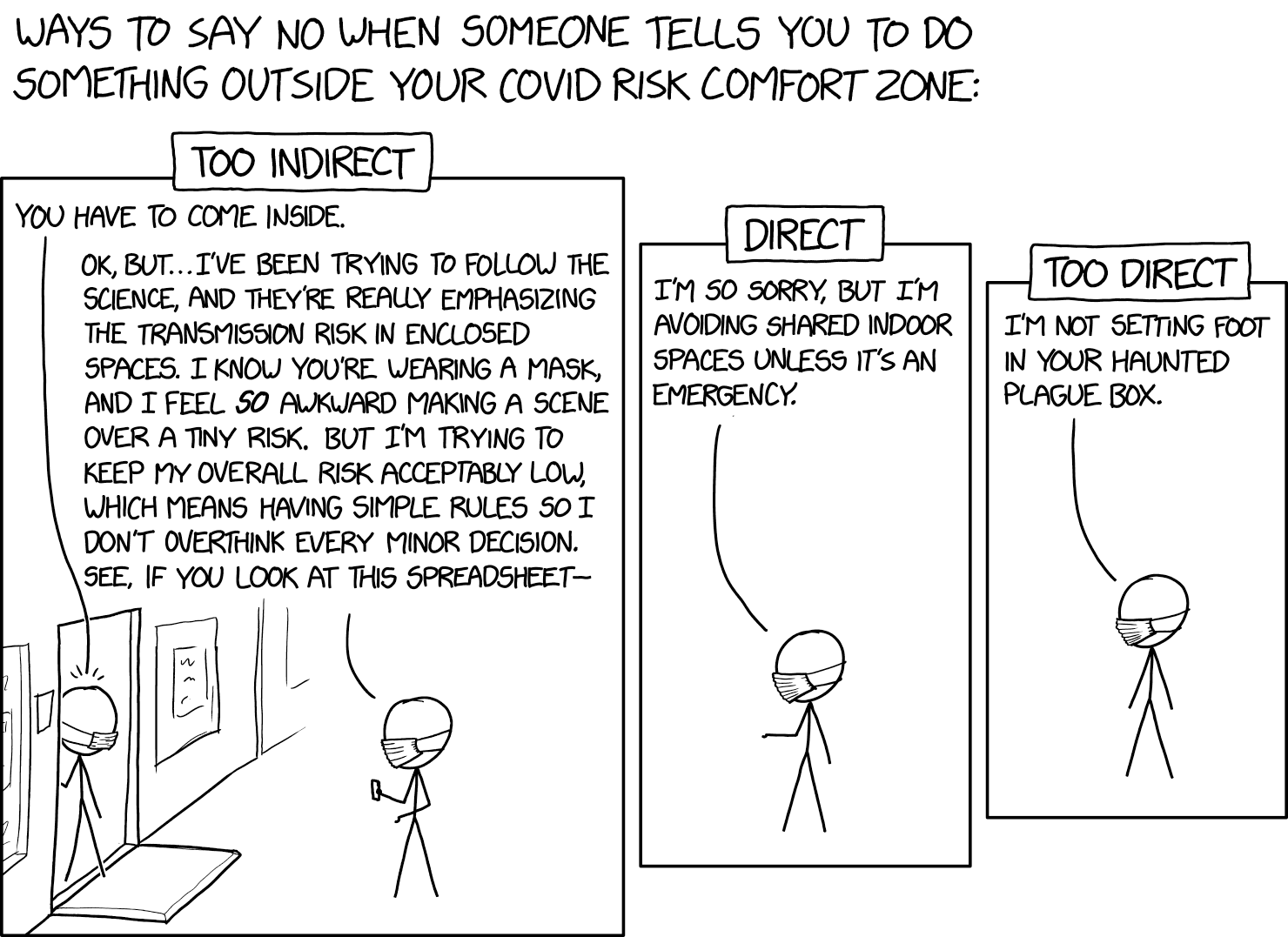Goldilocks and the three styles of explanation
« previous post | next post »
Today's xkcd:
Mouseover title: "I'm like a vampire, except I'm not crossing that threshold even if you invite me."
I'm not sure that linguists and philosophers of language have a standard term for this spectrum of communicative choices. It's related to implicature vs. assertion, and to degree of specificity, and also to simple old-fashioned frankness. But it's not exactly any of them.

J said,
August 16, 2020 @ 11:33 am
Perhaps something to do with euphemism vs. dysphemism as well?
BillR said,
August 17, 2020 @ 10:22 am
Seems reminiscent to me of …
I’m eccentric
You’re quirky
He’s batshit crazy
Does that sequence have a name?
Theophylact said,
August 17, 2020 @ 1:25 pm
I know it as "conjugations".
Theophylact said,
August 17, 2020 @ 1:27 pm
I am sparkling
You are remarkably talkative
He is drunk
Anthea Fleming said,
August 18, 2020 @ 5:22 am
I am firm
You are obstinate
He is a pig-headed fool
We used to call this progression an irregular verb. Yes, I know that's not correct.
JPL said,
August 19, 2020 @ 2:03 am
It looks like the cartoonist is giving us a humorous illustration of the Gricean maxim of relevance, and the first panel could also illustrate the violation of the maxim of quantity. Conversation, like argument, is an interactive activity, and thus is (ideally) governed by ethical principles, which in this case regulate what would be considered relevant. What the speaker wants to do is to indicate his refusal to assent to the expression of obligation and implied order to "come inside". The most important element in the explanation of action is the reason for the action (I mean here the causal explanation of action, but it's also the case for explanation in the ordinary sense.); and so, assuming the speaker wants to remain on good terms with the other person, what is most important and relevant in this case is to provide a good and principled reason for the refusal (“saying no”). After setting the stage with a proactive apology, this is what the panel 2 expression provides, no more, no less. "[I'm not going to come inside because] I'm avoiding indoor spaces unless it’s an emergency [because there is greater risk of catching the coronavirus]". (The bracketed messages are effectively implied.) In panel 1, a reason for the action is not provided directly, but rather background information pertinent to a reason, and a lot of it. In spite of the abundance of information, it lacks relevance, since the other person still might not even get the presumably intended implicature, and reply, "It seems like you're hesitant. Well let me assure you …." The panel 3 expression states the refusal directly without giving any relevant explanatory reason at all, indicating lack of interest in cooperation and community, and so unfriendliness and bad feelings. As set up, the cartoon seems to present a "Goldilocks" situation rather than a unidirectional scale, with "relevance" as the dimension of contrast: too much irrelevant info and skittishly avoiding even the implicature in panel 1; not enough relevant info and not caring about the dignity of the other person in panel 3. Truth is not really a relevant criterion for success here, but it's more a subjective matter of sincerity. (I usually use 'assertion' in cases where truth is at issue.)
Robert said,
August 21, 2020 @ 5:15 pm
@BillR, @Theophyact, @Anthea Fleming
I attributed this to the series Yes Minister, but it apparently originated with Bertrand Russell: https://en.wikipedia.org/wiki/Emotive_conjugation